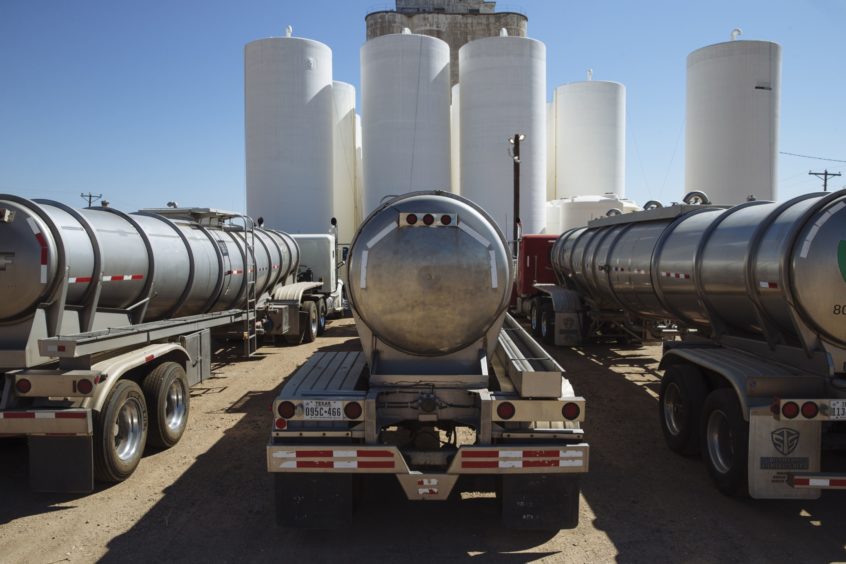
Oil pared losses as shrinking American crude and refined product stockpiles countered troubling signs of a slowing labor market recovery.
Futures in New York rebounded above $40 a barrel after earlier falling as much as 4.4% on Thursday. An Energy Information Administration report showing declining U.S. crude and gasoline inventories as well as a 7.25-million-barrel draw in distillate supplies, the most since 2003, provided optimism around a tightening supply picture.
Still, concerns are lingering that a return to normal demand levels may be far off. In the U.S., applications for state unemployment benefits unexpectedly jumped last week to the highest since August and coronavirus cases are continuing to rise in around the world, leading to tighter restrictions in cities such as Paris and London. Adding to the global supply picture, Libyan oil production is said to have reached 500,000 barrels a day.
“We’re seeing a slow, but healthy rebalancing in the market,” said Matt Sallee, portfolio manager at Tortoise, a firm that manages roughly $8 billion in energy-related assets.
“As long as product demand keeps moving steadily in an improving direction, this will be more than a blip.”
Oil-market sentiment has improved this week amid signals of stronger consumption in Asia, but the likelihood of drastic limitations on movement in some of Europe’s largest cities has reignited demand fears, with London set to face harsher measures from Friday night.
Plus, European airline Ryanair Holdings Plc cut its winter travel schedule, a signal that jet fuel consumption won’t recover in the short term.
However, U.S. labor market data is providing “more fuel for the fire of a sour economic outlook,” said Gary Cunningham, a director at Tradition Energy.
“If there are further restrictions or new restrictions put in place in Europe or here in the U.S., then that further decreases travel demand for petroleum.”
Prices –
West Texas Intermediate for November delivery fell 84 cents to $40.20 a barrel at 12:04 p.m. in New York.
Brent for December settlement declined 85 cents to $42.47 a barrel.
The EIA report also showed inventories at the nation’s largest storage hub at Cushing, Oklahoma, rose by the most since April as Hurricane Delta led to decreased crude demand from refiners on the U.S. Gulf Coast.
“For folks that don’t want to take delivery in the Gulf Coast, any north and south pipeline movements would be diverted to Cushing instead,” said Bob Yawger, head of the futures division at Mizuho Securities. “There’s no reason to jam barrels into an unknown situation.”